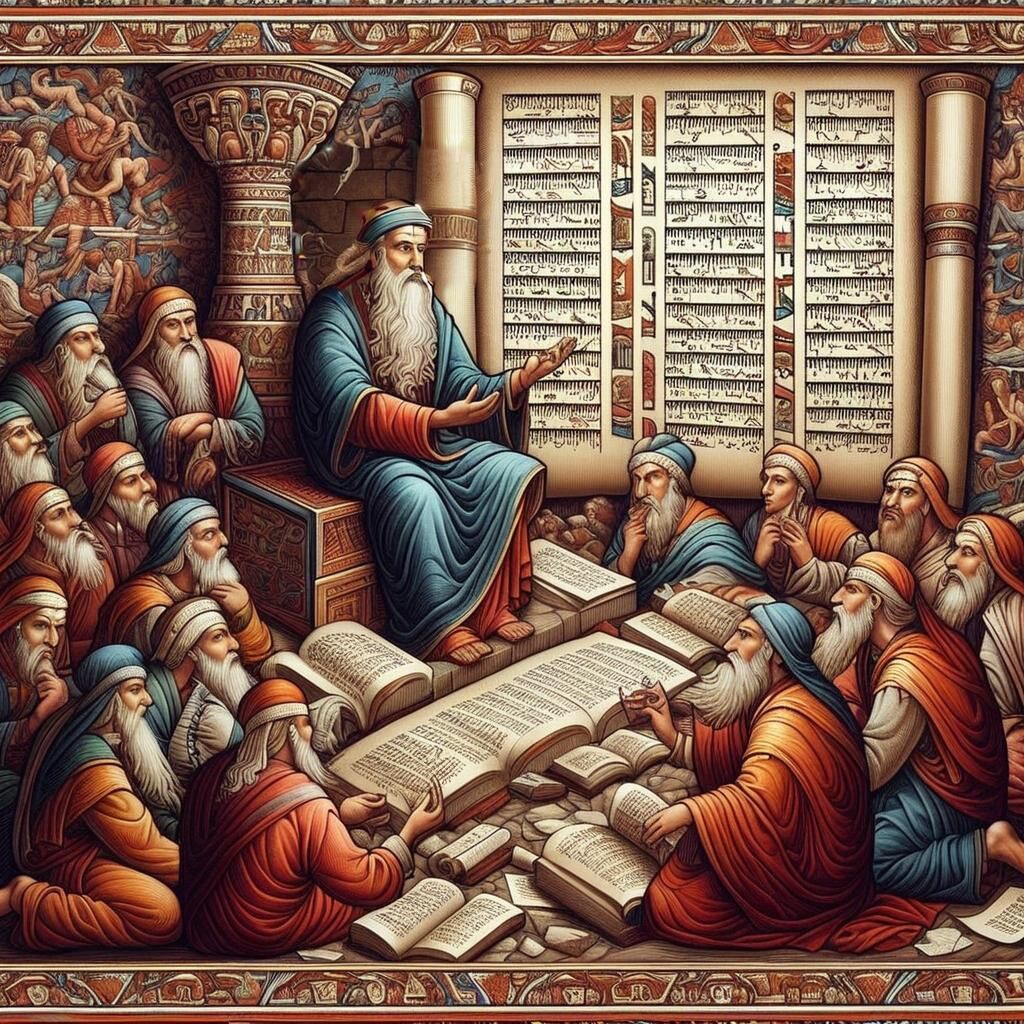Greetings, saints of the Most High! Welcome to another installment of the Messianic Torah Observer. Today, we delve into the intriguing topic of our Melchizedekian Priestly Pedigree, focusing on Jasher’s hidden chronicles.
In Part 3, we explored the theological implications of the Avram-Melchizedek encounter, discussing the dual offices of priesthood and kingship, the blessing conferred upon Avram, the significance of tithing, and the mysterious nature of Melchizedek. We also examined various religious perspectives on Melchizedek, including those from Catholicism, Islam, and Messianic Judaism.
Jewish legend and tradition often identify Shem, Noah’s righteous son, as Avram’s Melchizedek. However, there are several issues with this theory, including the lack of canonical biblical evidence and the improbability of Shem’s lifespan overlapping with Avram’s. Despite these concerns, the book of Jasher perpetuates this connection, presenting a narrative where Shem is indeed Avram’s Melchizedek.
Jasher’s account embellishes the biblical story, referring to Melchizedek as Adonizedek and describing a community meeting with Avram, bearing bread and wine. Interestingly, Jasher omits Melchizedek’s blessing of Yehovah, a curious detail given some ancient rabbinic opinions.
The narrative continues with Shem passing his prophecy school to Eber, his great-grandson, while the Melchizedekian priesthood is conferred upon Avram. This lineage, according to Jasher, includes notable figures like Adam, Enoch, and Noah, culminating in Avram.
However, the Jasher narrative raises questions about the authenticity and accuracy of these accounts. The Melchizedekian priesthood, as described in the Torah, operates outside biological heritage lines and temple sacrificial systems, foreshadowing the Spirit and Truth worship Yeshua spoke of.
Despite the conflicts between Jasher’s and the Torah’s accounts, we can glean significant insights into our Melchizedekian priestly pedigree. Concepts of righteousness, priestly conduct, obedience, and steadfast commitment to the faith form the foundation of our priestly calling. As students of Yahoshua’s Great School of Prophecy, we are in a season of training and preparation for our future roles in the Kingdom of Yehovah.
In conclusion, while I have my reservations about Jasher’s account, it offers valuable lessons about the godly elements that make up our Melchizedekian priestly pedigree. As we continue this series, we will explore these elements further, preparing us to serve as Melchizedekian kings and priests in the coming Kingdom of Yah.
May you be most blessed, fellow saints in training. Let us embrace our calling and prepare for the roles we are destined to fulfill.
Overturning Roe v. Wade and the Modern Messianic-Thoughts and Reflections
A Leak That is Shaking up Nation On M-nday, 5/2/2022, The Epoch Times reported that a supposedly leaked U.S. Supreme Court document suggests that the Judicial Branch of this country may finally overturn controversial Roe V. Wade. News of this leak rocked the...
God Humbles Those Who He Enters into Covenant With
This is an overview of the 30th Reading of our 3-year Torah Reading Cycle. It is found in Genesis/Beresheit 31:3-32:2. I use the Hebrew names of the patriarchs throughout this post. And just to familiarize you with the names so as to not cause any confusion:...
The Exceeding Kingdom Qualifying Righteousness That Takes us from Passover to Tabernacles-Part 1
The Exceeding Kingdom Qualifying Righteousness That Takes Us from Passover to Tabernacles-Part 1 One of the many things about Passover (aka Pesach) and the Days of Unleavened Bread (aka Chag HaMatzah) that we must be mindful of as we progress through the...
Keeping Passover by Way of the Renewed Covenant-Part 3 of Keeping Passover and Unleavened Bread in 2022
This is the third and final installment to our “Keeping Passover and Unleavened Bread in 2022” discussions. This installment is entitled “Keeping Passover by Way of the Renewed Covenant-In Spirit and in Truth.” If by chance you did not read or listen to...
Keeping Passover by Way of the Original Covenant-Part 2 of Keeping Passover and Unleavened Bread in 2022
This is “Keeping Passover and Unleavened Bread in 2022.” This will be part two (2) of a three (3) part discussion on Passover and the Feast of Unleavened Bread or Chag HaMatzah, which I’ve elected to entitle this particular discussion: “Keeping Passover by Way of the...
Some Passover Basics-Keeping Passover and Unleavened Bread in 2022-Part 1
This is “Some Passover Basics.” It is the first installment of a three (3) part series I chose to entitle: “Keeping Passover and Unleavened Bread in 2022.” We have a lot to cover. So let’s get right into it. For those of us who keep the Observational...
Shabbat HaGadol–The Pathway Towards our Redemption and Atonement-STAR-28
This is Shabbat HaGadol: The Pathway Towards our Redemption and Atonement. In observing Jewish circles, this Sabbath is referred to and celebrated as “Shabbat HaGadol.” Otherwise referred to as the great Sabbath, Shabbat HaGadol is traditionally held on...
Guarding the Month of Aviv-Aviv’s Critical Importance to God’s Covenant Elect
Opening Remarks "Observe the month of Abib, and keep the Passover unto Yehovah thy Elohim; for in the month of Abib Yehovah thy Elohim brought thee forth out of Egypt by night" (Deu./Devarim 16:1; ASV modified). Which brings me to the title of this discussion...
Birthrights-Blessings-Covenant Promises: Lessons Learned from the Story of Esau and Jacob-Part 2-STAR-26
This is Birthrights, Blessings, Covenant Promises-Lessons Learned from the Story of Esau and Jacob, Part 2. This will be the 26th Torah Reading or Parshah of the 3-year Torah Reading Cycle. Our reading is found in Genesis or Beresheit 27:30-38:9. Having...
Birthrights-Blessings-Covenant Promises-Lessons Learned from the Story of Esau and Jacob-Part 1-STAR-26
This is Birthrights, Blessings, Covenant Promises-Lessons Learned from the Story of Esau and Jacob, Part 1. This will be the 26th Torah Reading or Parshah of the 3-year Torah Reading Cycle. Our reading is found in Genesis or Beresheit 27:30-38:9. As in...

